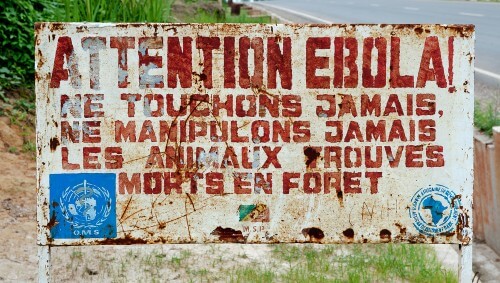The Ebola outbreak in West Africa raises questions about taking steps and updating the public in Israel as well. The new study conducted at the University of Haifa reveals the differences between the recommendations of the medical authorities when the risk is far away compared to the situation when the risk is close to "home"

As the health risk comes closer to home, medical professionals base their attitudes towards vaccines based on feelings and personal experiences and less on scientific and analytical knowledge, according to a new study conducted at the School of Public Health at the University of Haifa. "When the risk is far away, it is easier for medical professionals to maintain a professional point of view as representatives of the system. When the risk is in the immediate environment, they behave similarly to the general public and base their decisions on emotional and normative barriers," said Dr. Anat Gasser-Edelsburg, from the School of Public Health, who conducted the study together with Prof. Manfred Green and Nathan Welter.
The World Health Organization has declared the outbreak of the Ebola epidemic in West Africa as an international health emergency, and now the local medical officials are responsible for taking measures and updating the public about the risks and ways to prevent them. For example, in recent years there have been a number of cases where the public was urged to vaccinate against the risk of an epidemic, such as in the case of the fear of an outbreak of the polio virus from about a year ago or in the case of the bird flu that started in China, about a year and a half ago. However, in these cases other voices were also heard, unofficial or qualified, that there is no need to vaccinate or that the vaccine can even harm rather than help. In the current study, published in the American Journal of Infection Control, the researchers wanted to check whether public health professionals (doctors and nurses) recommend the same recommendations when the risk is far and when the risk is close.
240 Israeli respondents participated in the study: 109 health system employees and 131 citizens from the general public. Regarding the outbreak of bird flu in China (H7N9) from the beginning of 2013, they were asked whether the entire population of China should be vaccinated with the new vaccine and whether they and their family members would be vaccinated if they were residents of China. In the continuation of the simulation, they were asked whether the entire population of Israel should be vaccinated with the new vaccine and whether they and their families were going to be vaccinated if the virus and the fear of an epidemic were to reach Israel. The subjects were also asked to justify their decision.
The study revealed that when the risk was perceived as remote, that is, regarding the disease in China, health system workers tended to support a vaccination program more than the general public. The employees of the health system even based their positions more on analytical answers based on knowledge, compared to the general public, who justified their positions mainly on answers stemming from concerns and personal experience.
Surprisingly, however, the study revealed that when the risk reached the immediate environment, the differences between medical professionals and the general public disappeared. Both groups expressed, to the same extent, a more negative attitude towards the need for vaccines and in the same way, the reasoning of most members of the medical staff, as well as the general public, relied mainly on feelings and previous experiences, and less on analytical and scientific knowledge. According to the researchers, a connection was nevertheless found among medical professionals between those who recommended the vaccines and analytical knowledge, so those who recommended the vaccines tended to do so more through this type of explanation.
"When the case is far away, the attitude of the medical professionals is rational and analytical, but when it gets closer, the concerns increase, the question marks become stronger and even the fear of putting the public into panic introduces additional considerations, which did not exist before. The findings of the study revealed that when the risk of the disease is real, most health system employees behave like anyone else and base their positions more on feelings and personal experiences than on analytical knowledge," concluded Dr. Gasser-Edelsburg

One response
Even among medical professionals there are those who are influenced by sorcerers, gurus and "New Age" of all kinds. It's just a shame that they harm their children and not themselves.